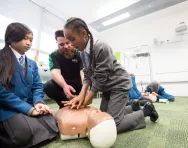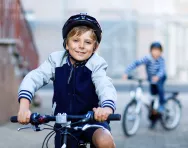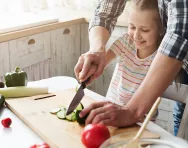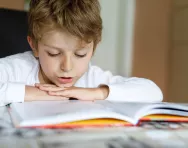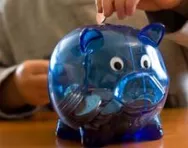Important update from TheSchoolRun
For the past 13 years, TheSchoolRun has been run by a small team of mums working from home, dedicated to providing quality educational resources to primary school parents. Unfortunately, rising supplier costs and falling revenue have made it impossible for us to continue operating, and we’ve had to make the difficult decision to close. The good news: We’ve arranged for another educational provider to take over many of our resources. These will be hosted on a new portal, where the content will be updated and expanded to support your child’s learning.
What this means for subscribers:
- Your subscription is still active, and for now, you can keep using the website as normal — just log in with your usual details to access all our articles and resources*.
- In a few months, all resources will move to the new portal. You’ll continue to have access there until your subscription ends. We’ll send you full details nearer the time.
- As a thank you for your support, we’ll also be sending you 16 primary school eBooks (worth £108.84) to download and keep.
A few changes to be aware of:
- The Learning Journey weekly email has ended, but your child’s plan will still be updated on your dashboard each Monday. Just log in to see the recommended worksheets.
- The 11+ weekly emails have now ended. We sent you all the remaining emails in the series at the end of March — please check your inbox (and spam folder) if you haven’t seen them. You can also follow the full programme here: 11+ Learning Journey.
If you have any questions, please contact us at [email protected]. Thank you for being part of our journey it’s been a privilege to support your family’s learning.
*If you need to reset your password, it will still work as usual. Please check your spam folder if the reset email doesn’t appear in your inbox.
19 life skills you can teach your child at home
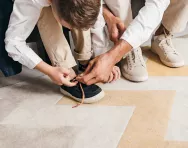
Every parent wants their child to grow up to be able to stand on their own feet. And while the day when they move out may still be many years away, you can still make a start on building their independence and helping them master skills and strategies that they'll be able to use into adulthood.
We’ve rounded up 19 essential life skills that your child can learn at home, setting them up for the future.
1. Saving and spending
A study by the University of Cambridge found that children form lasting money habits by the age of seven, so to help your child learn about saving and spending, encourage them to take some responsibility for their own money.
Younger children could keep their money in a clear jar, rather than a piggybank, so they can physically see the amount growing and shrinking. Natwest RoosterMoney helps children from 4 to 17 graduate through all the key milestones in learning about money. From using us as a star chart in the younger years teaching reward systems, to introducing a payment card when they're older to teach responsible spending.
Older children could use a spreadsheet to track their money, and eventually have their own bank account or a children’s debit card like Go Henry or Osper.
If your child wants to buy something on impulse, help them weigh up the pros and cons: is this something they really want, or would it be better to keep the money for something they’ve been saving for?
If they’re saving hard, you might want to talk about how they can balance that with allowing themselves small occasional treats.
2. Following a recipe
Helping in the kitchen has lots of educational benefits for children, and learning to follow a recipe means they can develop a wide repertoire of meals as they get older.
‘Reading recipes shows children how to follow a set of step-by-step instructions in the right order,’ says chef and GBBO winner Nadiya Hussain.
‘It also teaches things like patience, as they have to finish each stage before moving onto the next one.’
Children’s cookbooks are great for younger kids, but as they get older, you can use normal recipe books for a bigger challenge. And once they’ve learned how to make a cake, you can hand the task of baking for the school cake sale over to them!
3. Telling the time
Did you know that many schools have replaced analogue clocks with digital ones in exam halls as so many GCSE students can’t tell the time reliably?
Reading a clock face may seem outdated in today’s digital world, but it’s an important life skill, and part of the National Curriculum for KS1 maths.
We’ve rounded up some brilliant time-teaching products to help your child get to grips with telling the time.
4. Tying shoelaces
Teach your child to tie their own shoelaces, and not only will you no longer have to do it for them before heading out, but their teacher will thank you when they're getting changed after PE!
There are lots of good YouTube videos that demonstrate a variety of ways to tie shoelaces in child-friendly terms, and hacks to make it easier for small hands, like the ‘bunny ears’ method.
5. Doing the laundry
Are you forever picking dirty socks up from bedroom floors? Teaching your child to help with the laundry will help relieve some of the burden, and instill responsible habits that will (hopefully!) stand the test of time.
Early years children can help with tasks like pairing socks and putting their own clothes in the washing basket.
Older kids can be taught to use the washing machine, selecting the correct programme and measuring the right amount of detergent (but remember to always keep laundry tablets and capsules out of reach of young children).
They can also help with hanging laundry out to dry, and start to take responsibility for folding their own clothes and putting them away.
6. Pitching a tent
Camping is a real adventure for kids, whether they're going on Cub or Brownie camp, or on a longer family holiday under canvas. And if they can pitch their own tent, they'll be well equipped for future backpacking and festivals (eek!).
Camping out in the garden can capture the holiday experience without leaving home, and your child can help with setting up camp, learning how to put up a tent and make sure it’s secure.
‘Pitching a tent is a great way to keep your body and mind active,’ says adventurer and Savlon spokesperson Anna McNuff.
‘Let the kids read the instructions and figure out how to put the tent up: if you don’t have a garden, you could even pitch a small tent in the lounge.’
7. Changing their bedding
Changing bed linen is one of those tricky tasks that everyone also needs to know, so it pays to teach your child how to do it.
You’ll need to use a staged approach depending on your child’s age and gross motor development: an Early Years child may be able to help take the bedding off the bed but not put a fresh set on; a KS1 child can probably help tuck their sheet in and put a pillowcase on; and a KS2 child may be able to put a duvet cover on with help.
There are lots of different ways to change a quilt cover, including the inside-out method and the burrito method: have a look at YouTube videos to find the method that would best suit your child.
8. Washing up and loading a dishwasher
Kids often leave a trail of destruction in the kitchen, but even relatively young children can help with tasks like loading the dishwasher and washing up by hand.
You can start by teaching your child through play: for example, they could wash and dry a plastic tea set.
As they get older, they can move on to washing plastic plates and cups, then crockery and blunt cutlery, and scrape and rinse their plate before putting it in the right place in the dishwasher.
Make sure you supervise if your child is handling sharp or breakable objects, and enforce important safety rules like putting knives blade-down in the dishwasher basket.
9. Dialling 999
Teaching your child how to phone 999 could save a life, so even young primary school children should be told what to do. Make sure they know your address so they can tell the phone operator: you'll be surprised by how well even young children can do this.
Bethany Tidmarsh, an emergency call handler with East Midlands Ambulance Service, suggests hearing sirens, seeing an emergency vehicle go past, or seeing them on TV as good opportunities to talk about how to call 999, including reciting their home address.
‘It’s important that they know it’s not a scary thing to do, as we’re here to help and will stay on the phone with them until the ambulance arrives,’ she says.
You can also use story books, activity books and colouring sheets to help reinforce how to dial 999.
10. Wrapping a present
When it comes to wrapping presents, it seems we’re either brilliant at it, or terrible! Helping your child to learn to wrap gifts will increase the chances of them being in the first group.
You don’t have to wait for someone’s birthday: provide paper and tape and encourage your child to wrap objects of different shapes and sizes, like their own books and toys. They can then have the satisfaction of tearing the paper off again.
Wrapping presents is also a great creative activity: why not let your child design their own wrapping paper using coloured pens, stickers or ink stamps, or cut up old cards to make gift tags?
11. Riding a bike
If your child gets to grips with cycling, it opens up sp many opportunities, from travelling to school to long family bike rides, so whether your child is two or 12, it's a good idea to teach them to ride a bike.
The Bikeability Trust recommends starting out with a balance bike that has no pedals.
‘They’re a perfect way to start a child cycling, as they’re lightweight, easy to propel, and will teach them to balance properly before introducing them to a bigger and heavier bike with pedals,’ says the Trust’s Benjamin Smith. ‘Let them learn to balance intuitively: supporting them from the shoulders will hurt your back and won’t help them balance.’
For a step-by-step guide to teaching your child to pedal, try the HSBC UK Ready Set Ride free website and app.
12. Basic sewing
Sewing on swimming badges and missing buttons is one of those tasks that gets put off for weeks on end (and by the time you get round to it, that coveted badge is likely to have gone walkabout!). Teaching your child some basic needlework skills means that in time, they can do their basic sewing and mending independently.
You can introduce them to sewing basics using an age-appropriate kit: there are loads available, from kits with wool and a plastic needle for small children, to more complex toy-making kits for older kids.
You can then move on to more practical applications like sewing on buttons and mending small tears: just imagine how good it’ll be when they can sew on their Cubs or gymnastics badges themselves!
13. Writing a letter
Emails and texts may be the easiest way to keep in touch with friends and family, but it's still worth working with your child to resurrect the dying art of letter-writing.
What your child can achieve will depend on their age: the youngest kids can draw pictures and stick on stamps, while older ones will be able to write longer letters, and can be taught how to set them out and how to address an envelope.
‘Try having a “letter-writing box” with paper, cards, pens, coloured pencils, stickers, envelopes and stamps,’ suggests parent coach Louise Brooks of Parenting Success.
‘This will make it easier for your child to get started as they don’t have to go looking for what they need.’
14. Planning meals
Food waste is a topical issue right now, so it’s an excellent time to teach your child how to plan meals: ‘If we want to raise a healthy generation of kids, we must teach them how to plan for, shop for and prepare meals for themselves,’ says food writer Rachel Randolph.
Encourage your child to help you plan family meals each week by checking the fridge and cupboards to see what’s there and what you need, and making a shopping list that fits your budget.
Help them learn what makes a balanced diet, and use those principles across the week: the Eatwell Guide is a good visual representation.
Your child could write their meal plan on the family calendar or blackboard, fill in a spreadsheet, or use a printed weekly planner pad.
15. Basic gardening
Whether you have an acre plot or a few pots, helping in the garden is an engaging activity for kids that will get them outdoors and help them develop skills to create a fruitful and tidy garden.
Planting flowers, fruit or veg is a satisfying project for children of all ages to get involved with. Plant seeds or saplings that will have quick and impressive results, like marigolds, sunflowers and radishes, and encourage your child to water them regularly.
Older kids of around Year 6 age can get involved in more practical ways, such as weeding, painting fence panels and mowing, with supervision. If they’re reluctant, why not pay them to do these chores?
16. Touch-typing
Touch-typing could be one of the most useful things your child will ever learn, and kids as young as seven can master this essential skill.
‘It can be learned later on, either at secondary school or in adulthood, but the later you leave it, the more bad habits you’ll have to unlearn,’ says Sue Westwood of Englishtype, a programme that aims to get kids touch-typing in as little as 10 weeks.
Check out these brilliant touch-typing resources to get your child’s fingers flying.
17. Cleaning shoes
If you despair of your child coming home with muddy shoes, teaching them how to clean them is a great investment of time.
It’s best to let the mud dry on dirty shoes, so you can bang them together to get rid of the excess. Then show them how to scrape off remaining lumps of mud, and use an old toothbrush and warm soapy water to scrub the shoes clean, leaving them to dry before shining them with shoe polish.
This is probably a task for KS2 children rather than younger ones, and if they’ve stepped in dog poo, you’ll need to do it yourself (sorry!).
18. Looking after pets
For many children, owning a pet is their first experience of caring for something, and from a young age, they can start taking some responsibility for them.
‘Whilst adults are ultimately responsible for pets under the Animal Welfare Act, caring for them can involve the whole family,’ says Emily Stott of the RSPCA.
‘Children can help with things like cleaning small animal cages, preparing a pet’s food, and going out for walks with the dog, all as part of regular supervised family activities.’
19. Washing the car
Most kids love playing with water, so why not channel their enthusiasm into something useful and get them to help you wash the car?
After hosing the car down to remove the worst of the muck, show them how to use soapy water to get rid of any remaining dirt using a sponge or soft cloth like a chamois. Supervise them carefully to make sure they don’t scratch the paintwork; you’ll also need to help them reach the roof and other tricky areas.
You can then turn on the hose again and let them rinse away the suds. It may be a good idea to explain to them about water waste and think of more efficient ways to clean the car, such as using a hose with a trigger attachment or using leftover bucket water in a watering can to rinse the car off instead of a hose.
If your child is younger, let them practise on their bike, scooter or garden toys.
Please note that some of the products included in this article feature affiliate links; this means that if you click through and purchase one of the featured products, we might earn a small commission.
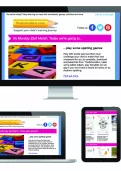
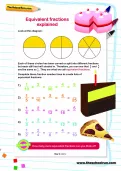
Start your child on a learning programme today!
- Weekly English, maths & science worksheets direct to your inbox
- Follows the National Curriculum
- Keeps your child's learning on track
